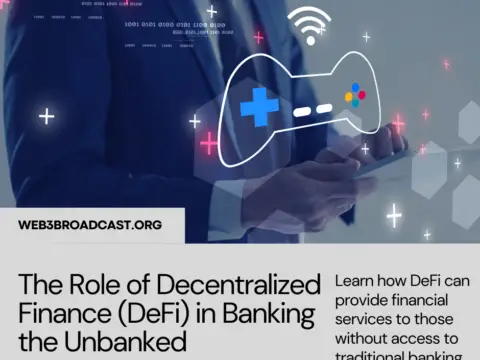Cross-border transactions have long been associated with challenges such as high fees, delays, and counterparty risks. Decentralized Finance (DeFi) presents a transformative solution to these issues. In this blog post, we will explore how DeFi can mitigate risks in cross-border transactions, offering a more efficient, transparent, and secure alternative to traditional financial systems.
1. Reducing Intermediaries and Fees:
- Traditional Challenge: Cross-border transactions often involve multiple intermediaries, leading to increased fees and longer processing times.
- DeFi Solution: DeFi eliminates the need for many intermediaries by leveraging smart contracts and blockchain technology, resulting in cost-efficient transactions.
2. 24/7 Accessibility and Speed:
- Traditional Challenge: Traditional banking systems may have limited operating hours and processing delays, especially across different time zones.
- DeFi Solution: DeFi operates 24/7, enabling users to initiate and complete cross-border transactions at any time. Blockchain transactions are also faster compared to traditional banking systems.
3. Eliminating Currency Exchange Risks:
- Traditional Challenge: Currency exchange fluctuations pose risks in cross-border transactions, impacting the final amount received.
- DeFi Solution: Stablecoins, a type of cryptocurrency pegged to a stable asset like a fiat currency, can be used in DeFi transactions to mitigate currency exchange risks and ensure value stability.
4. Smart Contracts for Trustless Transactions:
- Traditional Challenge: Trust issues and counterparty risks can arise in cross-border transactions, especially with unknown parties.
- DeFi Solution: Smart contracts automate and enforce the terms of transactions without the need for trust. This trustless nature reduces the risk of fraud or default.
5. Decentralized Exchanges (DEXs):
- Traditional Challenge: Centralized exchanges may be subject to regulatory uncertainties and hacking risks, affecting cross-border trading.
- DeFi Solution: DEXs operate on decentralized networks, providing a more secure and resilient platform for cross-border trading without a central point of failure.
6. Decentralized Lending and Borrowing:
- Traditional Challenge: Accessing credit across borders can be cumbersome due to differing regulatory environments and documentation requirements.
- DeFi Solution: DeFi platforms enable decentralized lending and borrowing, allowing users to access funds globally without the need for traditional credit checks.
7. Transparent and Auditable Transactions:
- Traditional Challenge: Lack of transparency in traditional banking systems can make it difficult to trace and verify cross-border transactions.
- DeFi Solution: Blockchain, the underlying technology of DeFi, ensures transparency and immutability. Users can trace transactions on the blockchain, enhancing auditability and accountability.
8. Cross-Border Remittances:
- Traditional Challenge: Remittance services often involve high fees, especially for smaller transaction amounts, impacting the overall value received.
- DeFi Solution: DeFi enables more cost-effective cross-border remittances, as users can leverage blockchain networks to send and receive funds with reduced fees.
Challenges and Considerations:
- Regulatory Compliance:
- Regulatory frameworks for DeFi are still evolving. Adhering to cross-border regulations and ensuring compliance with different jurisdictions remains a challenge.
- Smart Contract Risks:
- While smart contracts offer trustless execution, vulnerabilities in the code or unforeseen circumstances could lead to risks. Auditing and testing are crucial for mitigating these risks.
Future Trends and Innovations:
- Integration with Central Bank Digital Currencies (CBDCs):
- DeFi platforms may integrate with CBDCs to bridge the gap between decentralized and traditional financial systems, enabling seamless cross-border transactions.
- Enhanced Privacy Features:
- Innovations in privacy-focused technologies within DeFi can provide users with more options for maintaining privacy in cross-border transactions.
Conclusion:
DeFi is reshaping the landscape of cross-border transactions, offering a paradigm shift towards efficiency, transparency, and security. As the technology evolves and regulatory frameworks adapt, the potential for DeFi to mitigate risks and provide seamless cross-border financial services continues to grow, paving the way for a more inclusive and accessible global financial ecosystem.




